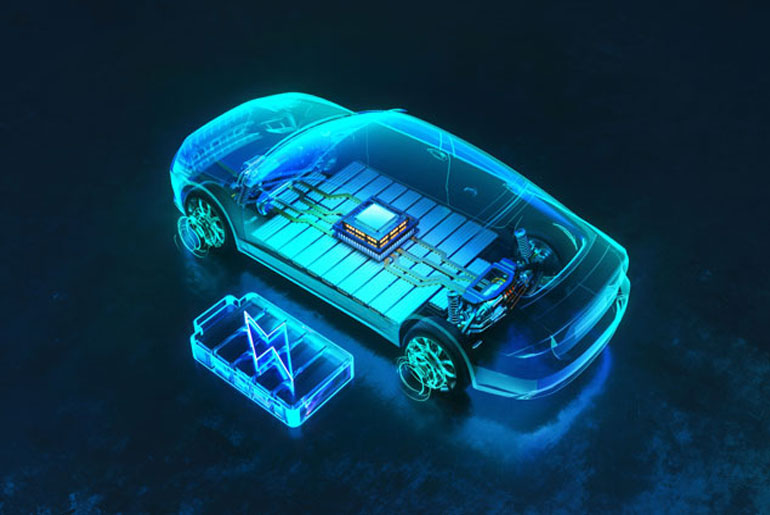Introduction to Lithium-Ion Battery Technology
The technology of lithium-ion batteries is essential for powering contemporary electric cars (EVs). Lithium-ion batteries, which are well-known for their high energy density, extended lifespan, and relative lightweight, are currently required for electric vehicles. Lithium ions travel between the anode and cathode in these batteries to produce electrical energy.
In terms of efficiency and performance, lithium-ion batteries are superior than conventional lead-acid or nickel-metal hydride batteries. Because of their increased energy storage capacity per unit weight, they are perfect for the automotive sector, contributing significantly to improvements in EV dependability and range as well as the transition to more environmentally friendly modes of transportation.
The Influence of Lithium-Ion Batteries on Electric Vehicle Performance and Range
Lithium-ion batteries significantly impact the performance and range of electric vehicles (EVs), playing a crucial role in their overall functionality and appeal.
-
Energy Density and Range:
High energy density in lithium-ion batteries allows EVs to store more energy within a compact space. This translates to longer driving ranges on a single charge, reducing the frequency of recharging and making EVs more practical for long-distance travel. For instance, many modern EVs now offer ranges that rival or exceed those of traditional gasoline vehicles. This high energy density also supports the development of smaller, lighter batteries, which can be integrated into more compact vehicle designs without sacrificing performance.
-
Power and Performance:
Lithium-ion batteries can deliver high power output, which is essential for the quick acceleration and robust performance of modern EVs. Their ability to provide consistent power ensures smooth and responsive driving experiences. This is particularly important for performance-oriented electric vehicles that need to deliver substantial power for sports car-level acceleration and handling. Additionally, the immediate torque provided by electric motors, powered by these batteries, offers a unique and exhilarating driving experience.
-
Efficiency:
Lithium-ion batteries are highly efficient in energy conversion, meaning more of the stored energy is used to power the vehicle rather than being lost as heat. This efficiency boosts the overall performance of EVs, making them competitive with traditional internal combustion engine vehicles. High energy efficiency also means that less energy is wasted during charging and discharging cycles, contributing to lower operating costs and better energy management for EV owners.
-
Weight and Vehicle Dynamics:
The relatively low weight of lithium-ion batteries compared to other types of batteries helps in maintaining better vehicle dynamics. A lighter battery contributes to improved handling, braking, and acceleration, enhancing the driving experience. This weight advantage also allows for better weight distribution in the vehicle, which can improve stability and control. In electric sports cars and performance vehicles, this translates to more precise cornering and a more engaging driving experience.
-
Thermal Management:
Effective thermal management systems in lithium-ion batteries prevent overheating and maintain optimal operating temperatures. This not only enhances safety but also ensures consistent performance and prolongs battery life. Advanced thermal management techniques, such as liquid cooling systems, help manage heat during high-power usage and fast charging, preventing thermal runaway and ensuring the battery operates within safe temperature ranges.
-
Fast Charging Capability:
The ability of lithium-ion batteries to support fast charging technology significantly impacts the convenience and usability of EVs. Shorter charging times mean less downtime and more time on the road. Fast charging networks are expanding globally, making it easier for EV owners to recharge quickly during long trips. This capability is crucial for increasing the adoption of EVs, as it addresses one of the primary concerns of potential buyers—charging time.
-
Longevity and Durability:
Lithium-ion batteries offer a longer lifespan, with the ability to sustain numerous charge and discharge cycles before significant degradation occurs. This longevity makes them a reliable choice for EVs, ensuring that the battery will last for many years of driving. Advanced battery management systems also help optimize charging patterns to extend the life of the battery, providing peace of mind to EV owners regarding the durability of their investment.
-
Environmental Impact:
Compared to traditional lead-acid batteries, lithium-ion batteries are more environmentally friendly. They have lower emissions during their lifecycle and can be recycled more efficiently. The shift to electric vehicles powered by lithium-ion batteries also contributes to reduced greenhouse gas emissions, as they replace conventional vehicles that rely on fossil fuels. Efforts to improve the recycling processes and reduce the environmental footprint of battery production are ongoing, further enhancing their sustainability.
-
Scalability and Versatility:
Lithium-ion batteries are highly scalable, meaning they can be used in a variety of EV types, from small electric scooters and bikes to large electric trucks and buses. This versatility allows manufacturers to design a wide range of electric vehicles to meet different needs and preferences. As battery technology continues to advance, we can expect even more innovative applications and improvements in energy storage solutions.
-
Integration with Renewable Energy:
Lithium-ion batteries can be effectively integrated with renewable energy sources such as solar and wind power. This integration allows EVs to be charged using clean energy, further reducing their carbon footprint. Home solar power systems paired with lithium-ion battery storage enable EV owners to harness renewable energy for both their home and vehicle, contributing to a more sustainable energy ecosystem.
Analyzing the Impact of Lithium-Ion Batteries on Electric Vehicle Performance and Range
Lithium-ion batteries offer a multitude of advantages that make them the preferred choice for electric vehicles. From high energy density and efficiency to fast charging capabilities and environmental benefits, these batteries play a crucial role in the advancement and adoption of EVs. As technology continues to evolve, we can expect further improvements in battery performance, cost, and sustainability, driving the future of electric mobility.
Overall, lithium-ion batteries are pivotal in defining the range, performance, and efficiency of electric vehicles, making them a cornerstone of the EV industry’s advancement.

